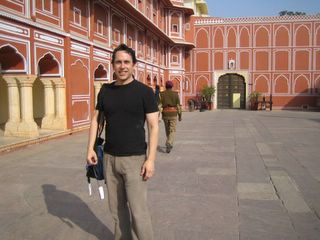Here’s what I learned from reading the obituary of Madeline L’Engle, the author of A Wrinkle in Time, who recently passed away at age 88: she didn’t write this massively bestselling book until after she was 40. In fact, in her thirties her writing career was going so badly that she thought she might give it up. The novel itself was rejected 26 times before finding a publisher. How’s that for inspiration?
If you haven’t read A Wrinkle in Time, you have missed out on one of the great experiences of childhood. It is practically the awesomest book ever. So go out and get a copy!
I can still remember how I felt in fourth grade when Mrs. Thacher read our class a chapter each afternoon after lunch to help us cool down. (This was at Navajo Elementary in Scottsdale, Arizona; given the midday temperatures lunch recess resulted in my daily entering a state of heat exhaustion and borderline mental illness). As she read the novel, I was transported.
A Wrinkle in Time is a book that’s both intense and easy to read. It’s about a girl named Meg who steps through a tesseract – a wrinkle in time – to a parallel universe in order to find her missing father, who despite his PhD can’t save himself. Meg is accompanied on this journey by her eerie genius 6-year old brother Charles Wallace. They meet characters named Mrs. Who, Mrs. Whatsit and Mrs. Which, and find a planet run by an evil force where all the children creepily bounce balls with exactly the same rhythm. Lots of other stuff happens.
Now that I think about it, Meg’s journey is sort of a metaphor for career growth and transition. She’s plunged into uncertainty and weirdness, her parents can’t really help her, and she gradually discovers that she has talents she’s never really seen or valued. The whole journey is scary and dangerous but far better than living on the planet of people who bounce balls with exactly the same rhythm!
When asked in an interview how she came up with the idea for A Wrinkle in Time, L’Engle said, “I think that fantasy must possess the author and simply use him.” She then added, “I cannot possibly tell you how I came to write it. It was simply a book I had to write. I had no choice.”
When reading this quote I thought of myself. I thought of the time I have spent wondering why I’ve made the decisions I have, both in work and love – basically why am me, as I am, rather than a different version of me.
What if we thought about the ways life possesses us rather than always thinking about how we are supposed to possess it? In other words, what is sometimes life is in charge rather than us?
Focusing on what we can do in our lives – as they are now -- rather than endlessly wondering why we are here, or why we’re not somewhere else – opens up possibilities. Maybe you can write a book that goes into (literally) 69 printings. Or maybe you can just bounce your ball to your own personal rhythm.
skip to main |
skip to sidebar

